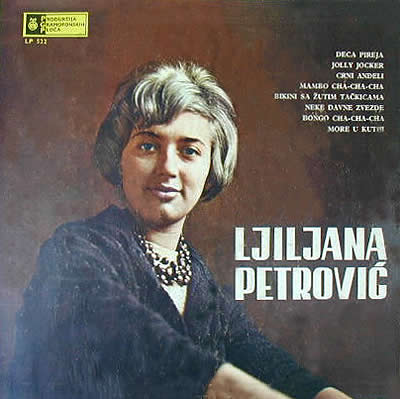
Lep i veoma vredan album sa današnje tačke gledišta. Snimak njenog glasa kako recituje svu tu bulumentu stihova i govori nam svoje lepe tekstove, mislim da je to prava retkost.
Jugoslovenska književnost je imala zaista hiljade boje. Jedna od jarkih boja bila je DESANKA. Hvala Vam za sve draga naša dečja spisateljice i naša savesti. Tvoji stihovi su danas recitovani od strane poznatih izvodjača u svetu a da to ne možemo da ti kažemo. Ali ti nas sigurno lepo shvataš i znaj da ćemo Te uvek poštovati.
Ovaj album je premijerno na internetu (ko još na svetu brine o takvim albumima osim ovog bloga) i drago mi je zbog toga.
Desanka Maksimović (Serbian Cyrillic: Десанка Максимовић, pronounced [dě̞saːŋka mâksimo̞ʋit͡ɕ]) (May 16, 1898 – February 11, 1993) was a Serbian poet, professor of literature, and a member of Serbian Academy of Sciences and Arts.
Biography
Maksimović was born on May 16, 1898 in Rabrovica, near Valjevo, the oldest child of father Mihailo, a teacher, and mother Draginja. Right after her birth, her father was transferred, and they moved to Brankovina, where Desanka spent her childhood. She graduated from the gymnasium in Valjevo and the University of Belgrade Faculty of Philosophy.
In August 1933 she married Sergij Slastikov, but they had no children of their own. Maksimović was a professor of Serbian language from 1923 until 1953 in several schools. First, she was a teacher at the Obrenovac gymnasium, then she moved to the Third Female Gymnasium in Belgrade. Eventually, she was transferred to the teachers' school in Dubrovnik, where she spent one year. After that, she worked in First female gymnasium in Belgrade. One of her best students was Mira Alečković, who also became a poet and a close friend of Desanka Maksimović.
When she heard of German soldiers shooting primary school children in Kragujevac, she wrote "Krvava Bajka" (trans. "The Legend of Blood" or, more literally "A Bloody Fairy Tale"), a poem that speaks of the terror practiced by German army in World War II. The poem was not published until after the war had ended.
She traveled across Yugoslavia, and befriended writers and poets such as Miloš Crnjanski, Ivo Andrić, Gustav Krklec, Isidora Sekulić, and Branko Ćopić. READ MORE













No comments:
Post a Comment